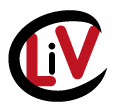The 1st International Conference “Translation and Cultural Sustainability: Groundwork, Foundations and Applications” will take place in Salamanca on November 28, 29, 30, 2018. The joint celebrations of the 8th centenary of the University of Salamanca and of the 25th anniversary of the implementation of Translation and Interpreting studies at this university provide the perfect background for a venue where Translation and Interpreting experts can meet to discuss the future of our discipline.
PRESENTATIONS
Keynote Lectures
a. Georges Bastin (Université de Montréal)
b. Susan Bassnett (University of Warwick)
c. Edwin Gentzler (University of Massachusetts)
d. Salvador Gutiérrez (Universidad de León)
e. Dorothy Kenny (Dublin City University)
f. Christiane Nord (University of the Free State, Bloemfontein)
Round Tables
a. Translation and the media
i. Moderator: Mª Rosario Martín Ruano (Univ. de Salamanca)
ii. Luc Van Doorslaer (KU Leuven)
iii. Roberto Valdeón García (Univ. de Oviedo)
b. Translation, migrations and asymmetries in the globalised world
i. Moderator: África Vidal Claramonte (Univ. Salamanca)
ii. Karen Bennett (Univ. Nova de Lisboa)
iii. Loredana Polezzi (Cardiff Univ.)
c. Linguistic norm for translators
i. Moderator: Julio Borrego Nieto (Univ. Salamanca)
ii. Ángel López García (Univ. Valencia)
iii. Miguel Ángel Quesada Pacheco (Univ. Bergen)
d. Terminology and Translation
i. Moderator: Joaquín García Palacios (Univ. Salamanca)
ii. Mª Teresa Cabré i Castellví (Univ. Pompeu Fabra)
iii. Pamela Faber (Univ. Granada)
e. Translation and Technologies
i. Moderator: Jesús Torres (Univ. Salamanca)
ii. Pilar Sánchez Gijón (Univ. Autónoma de Barcelona)
iii. Frank Austermühl (Aston Univ.)
f. Translation for entertainment and information: dubbing and subtitling
i. Moderator: Fernando Toda Iglesia (Univ. Salamanca)
ii. Jorge Díaz Cintas (University College London)
iii. Frederic Chaume Varela (Univ. Jaume I)
g. Teaching literary translation: bridging the gap between research and professional activity
i. Moderator: Belén Santana López (Univ. Salamanca)
ii. Miguel Sáenz Sagaseta de Ilúrdoz (Real Academia Española)
iii. Mª Teresa Gallego Urrutia (Traductora literaria)
h. Translating the sciences: universality and diversity
i. Moderator: Cristina Valderrey Reñones (Univ. Salamanca)
ii. Esther Monzó i Nebot (Univ. Jaume I)
iii. Óscar Jiménez Serrano (Univ. Granada)
i. Teaching today and tomorrow
i. Moderator: Silvia Roiss (Univ. Salamanca)
ii. Don Kiraly (Univ. Mainz)
iii. Dorothy Kelly (Univ. Granada)
j. Women interpreters, researchers and lecturers
i. Moderator: Jesús Baigorri Jalón (Univ. Salamanca)
ii. Dörte Andres (Univ. Mainz)
iii. Ángela Collados Aís (Univ. Granada)
PAPERS
Thematic panels
1. Linguistic and information and research disciplines and tools. Terminology; neology; lexicography; corpus processing; discourse analysis, information management, etc.
2. Revising and editing translations. Reviewing and editing source and target texts in the mother tongue; revising translations and translation quality assessment; post-editing, etc.
3. Constrained translation and technology-based media. Localisation of interactive digital products; screen translation; machine translation; etc.
4. The translation trade: tools and ethics. Professional issues in translation and interpreting; translation project management; computer-aided translation, translation and editing management systems; accessibility in translation and localization; etc.
5. Specialised and literary translation. Scientific and technical translation; finance/economics/business translation; legal, sworn and court translation; institutional translation; literary translation; translation for the publishing industry and the media; etc.
6. Translator training. Mother tongue, foreign languages and translation; languages for specific purposes; teaching translation and interpreting, etc.
7. History of translation
8. Theories and intersections. Translation and culture; post-colonial theories of translation; translation and gender; translation and sociology; translation and ideology; translation and globalisation: language and culture asymmetries; etc.
IMPORTANT DATES
− 31/05/2018: deadline for submitting paper proposals.
− 15/07/2018: notification of acceptance of proposals.
− 30/08/2018: deadline for early-bird registration.
− 31/10/2018: deadline for standard registration.
FOR FURTHER INFORMATION
− http://traduccionysostenibilidad.fundacionusal.es/
− E-mail: congresotraduccion@usal.es
− Complete programme :
